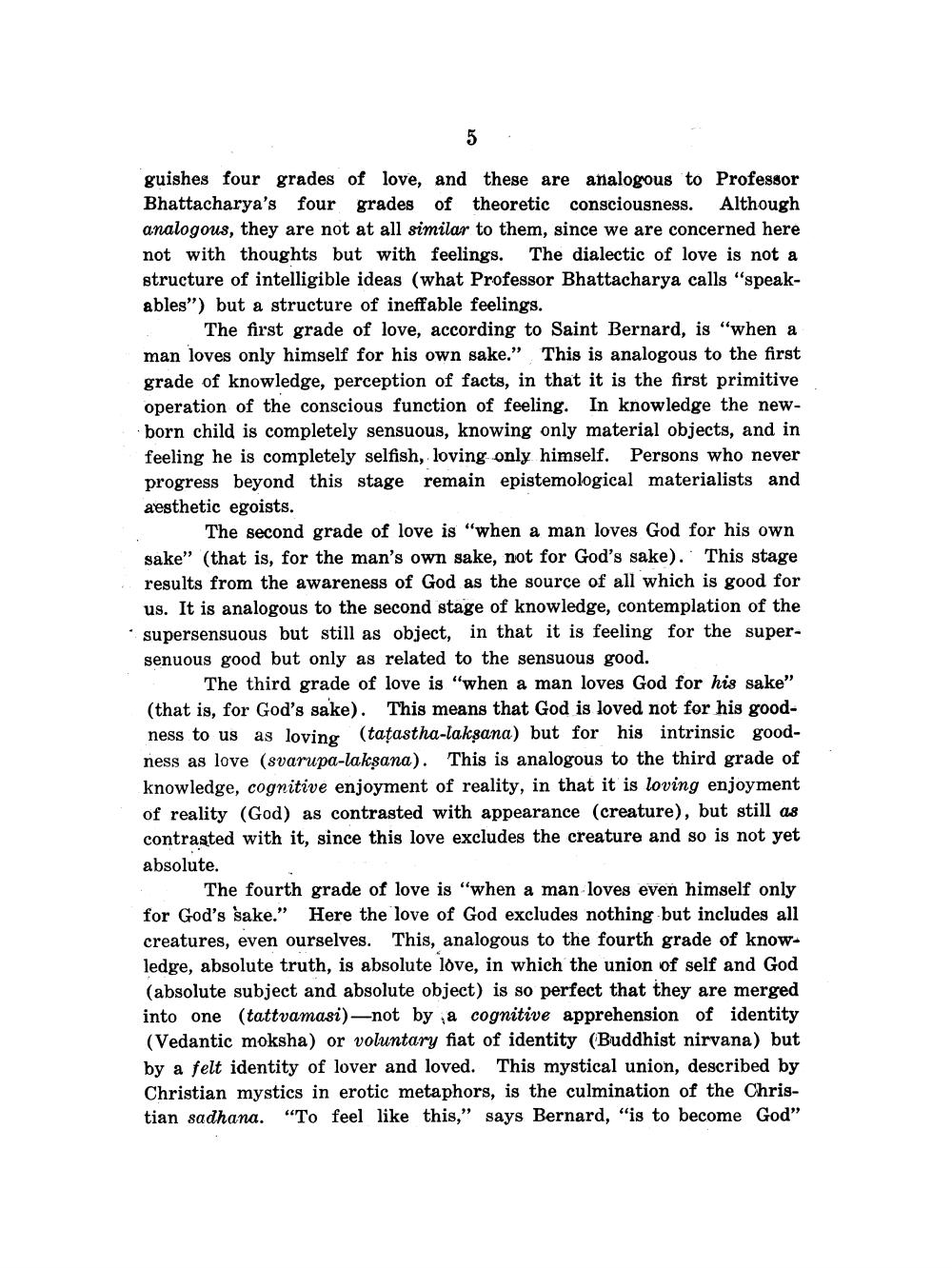Book Title: Absolute Feeling Author(s): Georg Burch Publisher: Georg Burch View full book textPage 5
________________ 5 . guishes four grades of love, and these are analogous to Professor Bhattacharya's four grades of theoretic consciousness. Although analogous, they are not at all similar to them, since we are concerned here not with thoughts but with feelings. The dialectic of love is not a structure of intelligible ideas (what Professor Bhattacharya calls "speakables") but a structure of ineffable feelings. The first grade of love, according to Saint Bernard, is "when a man loves only himself for his own sake." This is analogous to the first grade of knowledge, perception of facts, in that it is the first primitive operation of the conscious function of feeling. In knowledge the newborn child is completely sensuous, knowing only material objects, and in feeling he is completely selfish, loving only himself. Persons who never progress beyond this stage remain epistemological materialists and aesthetic egoists. The second grade of love is "when a man loves God for his own sake" (that is, for the man's own sake, not for God's sake). This stage results from the awareness of God as the source of all which is good for us. It is analogous to the second stage of knowledge, contemplation of the supersensuous but still as object, in that it is feeling for the supersenuous good but only as related to the sensuous good. The third grade of love is "when a man loves God for his sake" (that is, for God's sake). This means that God is loved not for his goodness to us as loving (tațastha-laksana) but for his intrinsic goodness as love (svarupa-laksana). This is analogous to the third grade of knowledge, cognitive enjoyment of reality, in that it is loving enjoyment of reality (God) as contrasted with appearance (creature), but still as contrasted with it, since this love excludes the creature and so is not yet absolute. The fourth grade of love is "when a man loves even himself only for God's sake." Here the love of God excludes nothing but includes all creatures, even ourselves. This, analogous to the fourth grade of knowledge, absolute truth, is absolute love, in which the union of self and God (absolute subject and absolute object) is so perfect that they are merged into one (tattvamasi)—not by a cognitive apprehension of identity (Vedantic moksha) or voluntary fiat of identity (Buddhist nirvana) but by a felt identity of lover and loved. This mystical union, described by Christian mystics in erotic metaphors, is the culmination of the Christian sadhana. “To feel like this,” says Bernard, "is to become God”Page Navigation
1 ... 3 4 5 6
